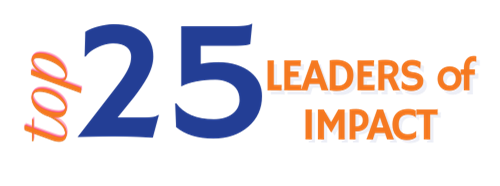What a multigenerational staff taught me about team culture
By Bert Miller
Just over a month ago, one of our team members welcomed his first-born. Our instant messenger was filled with congratulations, photographs, and parenting advice, as the team celebrated alongside him. Only a few weeks later, it was a team member’s newest grandchild we were announcing in our weekly bulletin of company wins.
It struck me how these two amazing contributors were both coming from two very different points in life — and made me realize what a unique time in history we’re living in. With Americans retiring later than ever, many work teams now consist of members from five distinct age demographics: traditionalists, baby boomers, Generation Xers, millennials and Generation Zs, all gathering in the same break rooms and chat rooms.
In many ways, having such a wide range of different ages in the office is a benefit. On my own team, I experience a diversity of ideas and approaches every day; we’ve got an incredible mix of life experiences and perspectives that come together to create a spectrum of thought. We’ve got digitally savvy young folks, and industry experts who bring decades of search experience to their roles. Together, that’s a mix that helps us target a variety of clients and customers and think about business in new ways.
But there can sometimes be challenges to a team of so many different ages. Differing values regarding culture or work can cause clashes or misunderstandings. Communication styles can vary from generation to generation (texting a client might seem totally appropriate for one age group, and foreign to another). Differing ideas about productivity, professionalism, or working styles can create friction, too. I know we’re not the only company experiencing this unique generational overlap. Luckily, as our own team demographics have evolved over the years, we’ve discovered some key factors in uniting across generational divides. Here, some tried-and-true strategies for getting team members of all ages to bring out the best in one another.
Build a culture of listening
No matter their age, people lean in when they feel like they’re being heard. Listening boosts employee engagement and job satisfaction across the board, and engaged employees are ones who practice more empathy and patience with their coworkers – from Gen X to Gen Z.
I have an open-door policy (both physical and virtual) to keep conversation open for the team, but beyond that, we double-down on showing that we’re listening. In the weeks leading up to our annual leadership retreat, we actively request feedback of all kinds — whether people have strategic ideas, or complaints about the coffee in the breakroom, we want to hear it. Then, over that weekend, one by one, we review and try to tackle every single note.
When we come back with a plan, it’s not just about fixing something that’s not working quite right: it’s a way to show that we’re listening, and caring, and that this company is as much in the hands of the team as it is the C-suite. Whatever your age, that’s a powerful feeling.
Forget about age; hire people who are young at heart
On our team, we’ve got what I like to call “young seasoned people” — those who may technically classify as Boomers or Gen Xers, but who approach life with a curiosity and verve that transcends their years. Hiring people who are open-minded and receptive to change (whatever their age), isn’t just helpful for making the office a fun place to be; studies show that this sort of attitude is the backbone of high-performing, highly adaptable firms.
Of course, beyond just seeking out adaptable, creative people in your recruiting process, it’s crucial to encourage that sort of mindset through your company values, mission, and practices.
People at any age who are stubborn or unwilling to look beyond the way “we’ve always done it” aren’t going to get you far — whether they’re 62 or 26. Reward curiosity and encourage people of all ages to experiment.
Yes, many of our innovative digital strategies are built out by our younger staffers — the digital natives — but we have a whole team of people who are inclined towards trying new things and who aren’t afraid to put themselves out there.
Foster cross-pollination
Generational wisdom doesn’t do you much good if it exists in a silo. Employee knowledge-sharing (whether it’s an older employee sharing a proven prospecting strategy, or a 20-something team member passing on some social marketing tips) is crucial to building a well-rounded, informed team that can tap into the best of old-school methods and innovative new practices.
My executive search business, Protis Global, which happens to skew much younger, was originally located in a different building from our more mature MRINetwork parent business. And that lack of physical proximity resulted in a general lack of business maturity. Don’t get me wrong: the team’s intelligence was high; the talent was high. But when we moved everyone onto the same campus before the pandemic, it was like both teams went from 2D to 3D. Friendly office interactions turned into coffee chats, grabbing lunch, or going out for drinks with the team — moments of friendship and swapping stories that simply couldn’t have been mandated from the top.
Hiring coaches or assigning mentors can help, absolutely — but true collaboration and cross-pollination benefits from proximity. During remote work times, this can be harder to replicate, but even cross-functional Zoom meetings or Donut digital coffee dates can help connect colleagues across the generational divide.
Move towards a common mission
The absolute best way to erase divides between groups, is to unite them in a common goal — and what better goal than a purpose driven company?
Getting your team on board starts with consistency. Values that are practiced as much as they’re preached; professional development that focuses on shared goals. Quarterly updates that hammer home the big wins and shared accomplishments.
Because, ultimately, you don’t have a team of generations: you’ve got a team of individuals who (if you’ve hired right) are ready to work hard. Building a team that feels pride, camaraderie, belonging, and identity around their job, not their age, transcends birth dates to create something lasting.
Bert Miller serves as Chairman of Protis Global and ace Talent Curators, and President and CEO of MRINetwork, a network centric recruitment organization










